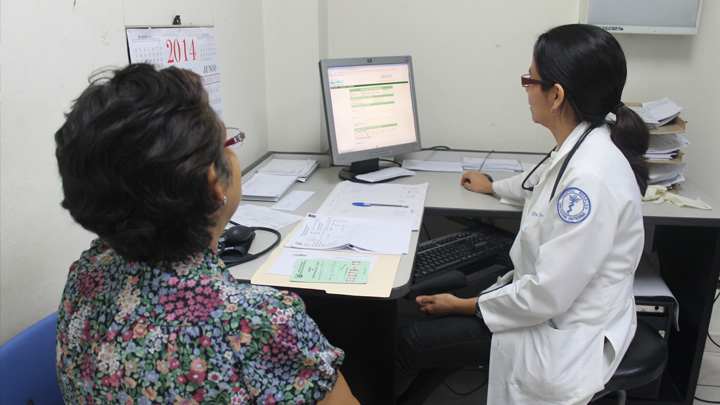The handling and protection of Salvadorans' health data requires a transformation that can only be undertaken through a legislative change resulting from inter-agency dialogue and knowledge of the best practices applied at international level

In El Salvador, few issues are as overlooked on public and media agendas as the management of medical records. The irony is that these documents contain sensitive personal information about the health of thousands of people which must be protected with the maximum quality standards. The issue takes on even greater importance in the public health sector, which serves 84% of the population (Household Survey for Multiple Purposes 2014 DIGESTYC-MINEC).
Between January and March 2017, the Institute for Access to Public Information (IAIP) conducted a series of interviews with key staff at the Ministry of Health (MINSAL) and the Salvadoran Social Security Institute (ISSS) to get a preliminary picture of certain aspects of document management and protection of personal data. The information will help the IAIP, as the lead agency in these matters, issue the pertinent guidelines. From the earliest interviews, a complex reality began to emerge.
In terms of standardisation, at least six documents were found that contain different criteria for the handling of medical records. And yet there is no standard for management for the entire public sector. For example, the document file has become a problem that is literally swamping the public health system. Although the situation is not the same at all care centres, there are warehouses where the only factor considered in storage of these documents is their weight in kilos.
Another discovery was the scant or non-existent knowledge of data protection rights (ARCO rights – Access, Rectification, Cancellation and Opposition). On the one hand, health operators that cannot guarantee full exercise of these rights; and on the other, users who do not demand them. But how can a right that is unknown by the people charged with guaranteeing it be demanded?
During the interviews, a series of challenges related to management of medical records appeared in succession. Almost all the interviewees agreed on the need for migration of the data to electronic and standard formats. Something that, among other benefits, would allow the information to be interoperable. That means the ability to access the medical record during any patient intervention from any patient location. But while there are plenty of arguments in favour, the possibility of migration runs up against another reality. Its implementation would require significant financial investment. Preliminary data, provided by the two organisations, reveal that this would involve an investment of approximately $40 million. But even in a favourable scenario, standardisation of management would still not be fully achieved with migration to the electronic format. In fact, any action to be implemented would face at least two initial challenges.
First, standardisation of document management and protection of personal data in the records currently managed on paper. That is, what is to be done with the existing records? Second, the commitment of the people involved in the management of these documents, beyond the MINSAL operators.
The IAIP, as the lead agency in the matter of document management and protection of personal data, could simply issue guidelines and verify compliance with them. But, is this really what interests us? Limiting our intervention to these two actions would be to deny an overly complex reality that is expressed in multiple dimensions. Management of medical records, in this case in El Salvador’s public health sector, requires above all a profound inter-agency dialogue to design a roadmap for the making necessary changes. To do so, it would also be necessary to learn how similar processes have been developed in other realities. Otherwise, no matter how technically well designed, the standard would not be sustainable over time. EUROsociAL supports us in this process by promoting experience exchanges between El Salvador and the countries of Latin America and the European Union.
POR ALICIA MIRANDA DUKE, JEFA DE ESTUDIOS E INVESTIGACIÓN DEL INSTITUTO DE ACCESO A LA INFORMACIÓN PÚBLICA DE EL SALVADOR / HEAD OF STUDIES AND RESEARCH AT THE INSTITUTE FOR ACCESS TO PUBLIC INFORMATION



